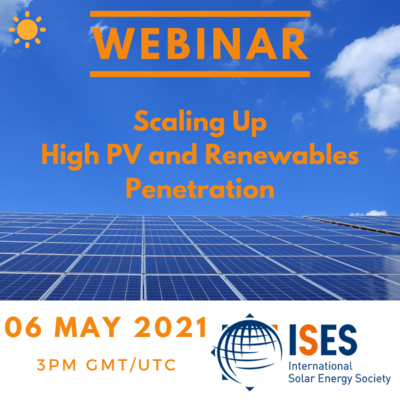
Scaling Up - High PV and Renewables Penetration Scenarios
Driving the renewable energy transformation, the upscaling of renewables such as PV will be key in meeting the energy needs and to build the energy systems of the future. In this webinar, five experts will present scenarios on ultra-high renewable penetration, upscaling PV in an insular context, a purely PV-EV based nationwide energy system, case studies on national PV upscaling as well as take a look at the life cycle impacts of PV and possibilities of PV recycling.
This webinar will welcome the following presentations:
- Marc Perez (Clean Power Research) - Achieving Ultra-high Penetration Renewable at Least Cost
- Tobias Boström (Arctic University of Norway) - The pure nationwide PV-EV energy system
- Mathieu David (University of La Reunion) - High PV penetration on the insular grid of Reunion Island
- Vasilis Fthenakis (Columbia University) - Sustainability of large growth of photovoltaics in energy transition scenarios
- Cristina Cornaro (University of Rome) - Italian protocol for massive solar penetration
The webinar will last 90 minutes including a dedicated Q/A session for the audience to ask questions. A recording of the webinar as well as the presentations given by the panellists will be made available online after the webinar.
Speakers
Tobias Boström
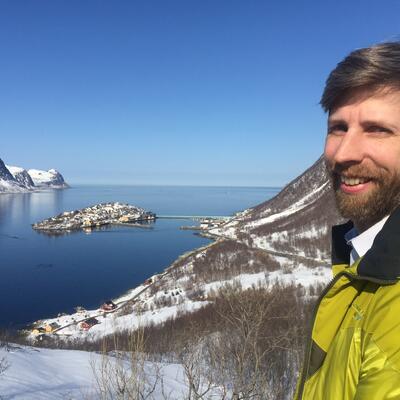
Since 2013, Tobias Boström is a Professor in Renewable Energy at UiT – the Arctic University of Norway. Originally, a material scientist who in the last ten years has moved towards more system oriented research, Tobias expertise is solar energy, having more than twenty years’ experience in this field. Presently, Tobias's work focuses on creating robust sustainable energy systems by using hybrid renewable energy sources, demand response management, electric transportation, V2G and other energy storage solutions.
Presentation: The pure nationwide PV-EV energy system
This visionary conceptual study presented in this webinar shows that it is theoretically possible to power a complete country like Spain solely by the use of photovoltaics (PV), and to balance the intermittency solely by using the battery capacity of a fully electric transport system and V2G technology.
Cristina Cornaro

Cristina Cornaro graduated in physics (cum laude) at the University of Rome "La Sapienza" in 1991, and obtained her Ph.D. at the University of Rome Tor Vergata in 1996. Currently, she is Associate Professor of environmental technical physics at the University of Rome Tor Vergata. Since 2007 she also manages the ESTER outdoor facility which consists of a solar and weather unit and of a PV modules monitoring unit, doing research on PV devices of traditional and innovative technologies,and forecast methods for PV power production. Her research is also focused on advanced solutions for energy efficiency in buildings. Cristina is the official member for Italy on the IEA PVPS Task 16 on “Solar resource for high penetration and large scale applications”.
Presentation: Italian protocol for massive solar penetration
This work describes a progressive strategy to achieve 100% penetration of intermittent renewables at minimal cost. The strategy works to optimally transform variable renewable energy (RE) into firm, effectively dispatchable generation. This functional dispatchability enables large-scale displacement of conventional generation at equal or lower production cost, outlining a pathway for a full renewable energy transition of the Italian electric mix.
Mathieu David
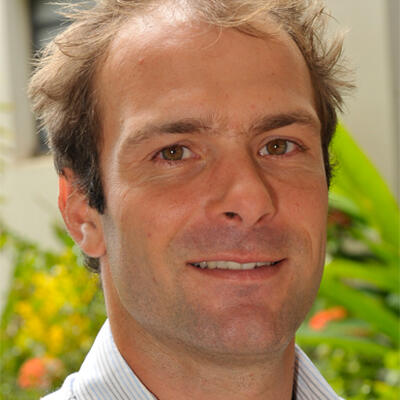
Since 2010, Mathieu David is Associate Professor and currently the Head of the laboratory PIMENT of the University of La Reunion as well as Senior Lecturer at the Energy and Building department of the engineering school ESIROI. His main field of interest is energy meteorology and specifically, he is involved in research projects about low consumption buildings in tropical areas and about the integration of intermittent renewables in energy grids.
Presentation: High PV penetration on the insular grid of Reunion Island
On Reunion Island, PV already represents an important share of the generation mix and this share is expected to increase significantly in the near future. In this context of increasing PV penetration, ensuring the supply-demand balance at an affordable price for the users could be achieved with energy storage and overbuilding of the PV capacity.
Vasilis Fthenakis
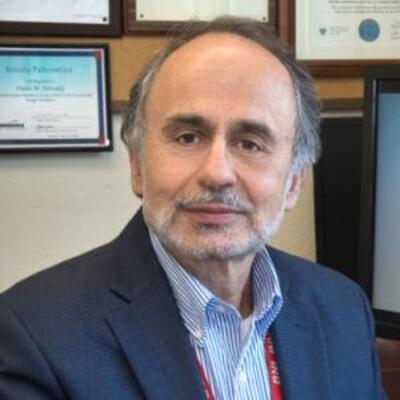
Dr. Vasilis Fthenakis focusses on research at the interface of energy, water and the environment. He is the Founding Director of the Center for Life Cycle Analysis at Columbia University, a Professor of Earth and Environmental Engineering at Columbia, and a Distinguished Scientist Emeritus at Brookhaven National Laboratory (BNL). He is a Fellow of the AIChE, a Fellow of the IEEE and the recipient of the 2018 IEEE William Cherry Award “for his pioneering research at the interface of energy and the environment that catalyzed photovoltaic technology advancement and deployment world-wide”.
Presentation: Sustainability of large growth of photovoltaics in energy transition scenarios
Marc Perez
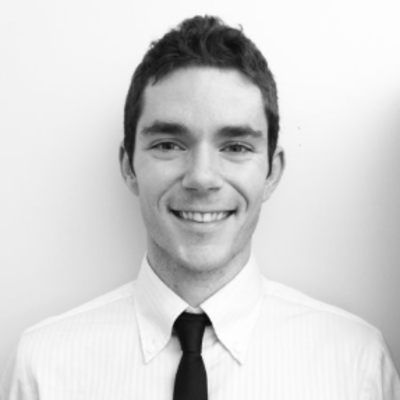
Marc Perez is Lead Researcher at Clean Power Research in California. He is a trained scientist with 20 years of experience in the solar PV sector across multiple roles: C&I development, academia, corporate research and software development. Marc holds his PhD, M.S. and M.Phil in Earth & Environmental Engineering from Columbia University in New York where he was a National Science Foundation Graduate Research Fellow, Egleston Doctoral Scholar and was awarded the Star fellowship from the Environmental Protection Agency. He holds a B.S. in Optical Engineering and a B.A. in Physics from the University of Rochester. At Clean Power Research, he manages science and research in the areas of high penetration solar, solar potential assessment using remote sensing data, solar forecasting, PV spec inference, DER adoption and other domains.
Arabella Liehr - Moderator
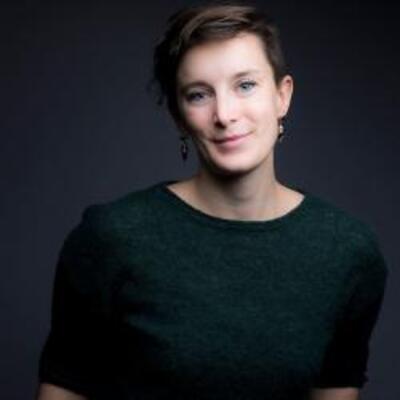
Having graduated from Goldsmiths College at the University of London, Arabella brings her background in political science to the realm of solar and renewable energy following her research focus on democratic and sustainable societal processes. Arabella has joined the ISES team in 2018, working on the ISES congresses, webinars, infographics, outreach activities and many more.




